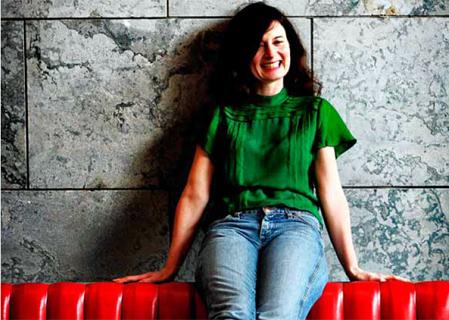The Dogme Brothers in the late 1990s catapulted Danish cinema into the international stratosphere. Now, little more than a decade later, their younger sisters are stealing the headlines and gaining international recognition.
Susanne Bier is making it in Hollywood, Lone Scherfig's recent Oscar and Bafta nominated "An Education" has maintained the success she achieved with her 2000 Dogme film "Italian for Beginners", and Pernille Fischer Christensen, who rocketed into international orbit in 2006 with her Silver Bear winner "A Soap", has cemented her position with "A Family", which ran off with the critics' award in Berlin.
"Danish film always featured strong women, but right now they are simply doing exceptionally well," says Ib Bondebjerg, professor of Film and Media Studies at Copenhagen University. "We have women directors making headlines at home and internationally. Directors like Susanne Bier and Lone Scherfig long since proved that they have the stature and stamina as artists that enables them to move in the international market."
Pernille Fischer Christensen on the red carpet with a baby on her arm, that kicks ass! - Christina Rosendahl
Underground of Talent
It is not only at the top of Danish film that women are proving their ability to send critics, award committees and audiences leaping from their seats with applause. The pool of new, young talent is greater than ever before. One reason for that is the enhanced focus on talent development in the Danish film industry in recent years, Christina Rosendahl says. A film director, Rosendahl also heads the Danish Film Institute's Feature Film Council and is vice chairman of Danish Film Directors.
"I don't know the exact figures, but I get the clear impression that the talent pool is singularly large right now as compared to ten years ago. Support schemes like New Danish Screen have heightened the focus on talent. And the more talents that emerge, naturally, the more women directors we will be seeing," she says.
Rosendahl is convinced that the international success enjoyed by Scherfig, Bier, Christensen and others is extremely important to young women directors currently coming out of the Danish film underground.
"It's hugely important! They are role models for other women. Pernille Fischer Christensen on the red carpet in Berlin with a baby on her arm – that kicks ass! Being a film director is an insanely tough job. We have to manage a set and deliver a film, while dealing with all manner of tortured souls, so it's a tough field to navigate," she says.
"Everyone who has a normal 9 to 4 job knows how hard it is to keep it all together when you're raising a family. So when you want to be a filmmaker, having a child can seem completely impossible. As directors, we're still expected to work without a salary for long periods and when we're on set, we have 70- or 80-hour workweeks. While that's going on, you're deeply dependent on having a supportive and understanding network. So when we see women being successful, we realise that we, too, can demand the same kind of support they're getting," Rosendahl says.
'Director' Will Suffice
Katrina Schelin, a director and board member of the Women in Film and Television network, runs a workshop about women and film at the European Film College in Ebeltoft. She agrees with Rosendahl that powerful role models are worth their weight in gold to new generations of filmmakers.
"It means the world to see that there are others like us. It makes you go, 'I can do that, too.' I'm convinced that the slew of powerful directors we have seen in recent years will bring a lot more women into film over the long term."
Pernille Fischer Christensen is one of the positive role models whose success is benefiting young women directors. Personally, she never saw it as her mission to bring more women into Danish film. "I was never interested in that," she says. "When I do interviews, I often ask the journalist to leave out 'woman director', because it always bothered me to be pigeonholed like that."
In the 1990s, when she was attending the National Film School, she did occasionally feel like a minority because of her gender. But it's not like that anymore. "There's been a sea change. I don't think the young generation of women directors consider their gender an issue. Successful women directors already exist. My older sisters in film, like Susanne Bier and Lone Scherfig, already fought that battle for us."
Quality, Not Gender
While Danish cinema today is marked by powerful films made by women directors, full equality is still a ways off. A 2009 report by Danish Film Directors shows that women constitute just 20 percent of directors at the highest end of the income scale. That's not good enough, Rosendahl says. But, unlike Women in Film and Television, she does not think gender quotas are the way to go.
"Personally, I think introducing quotas into the area of film would be a complete disaster. Quotas are for fish, not film directors. And I think it would keep us in the role of victims. We have to fend for ourselves and start acting like the role models we have. I would be furious if I suddenly had to get my funds from a special quota. It should be a question of quality".
